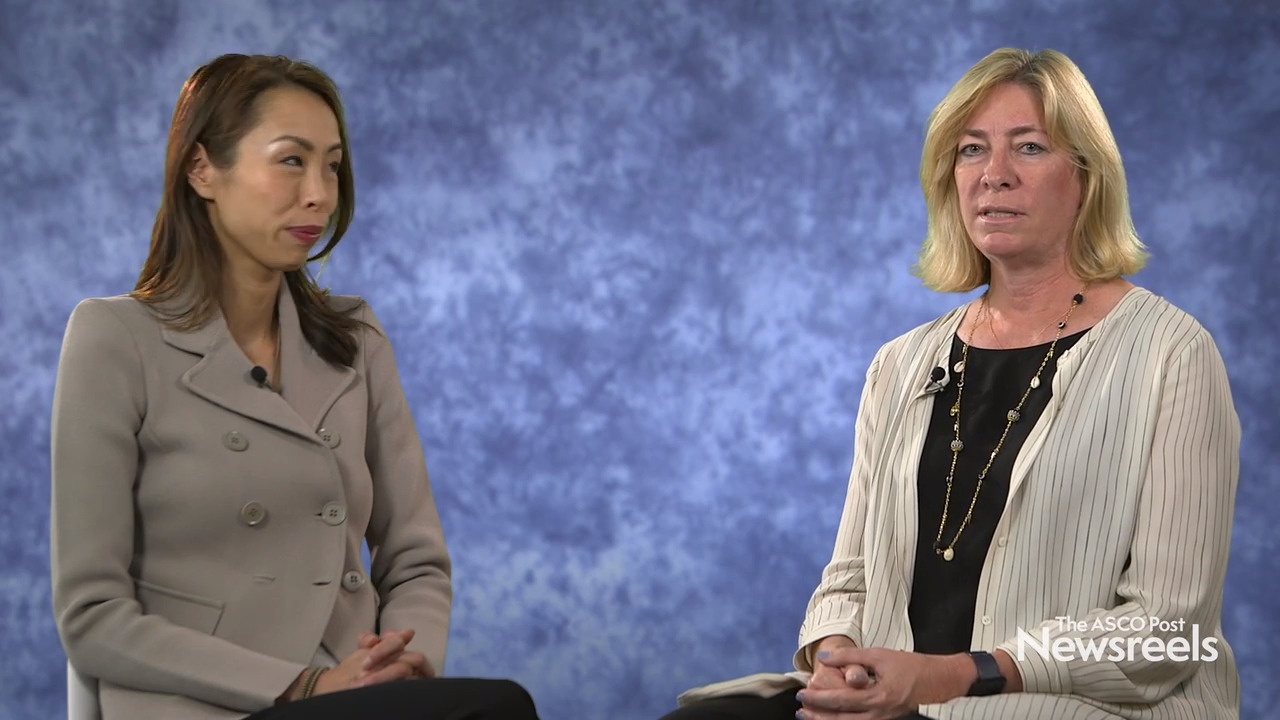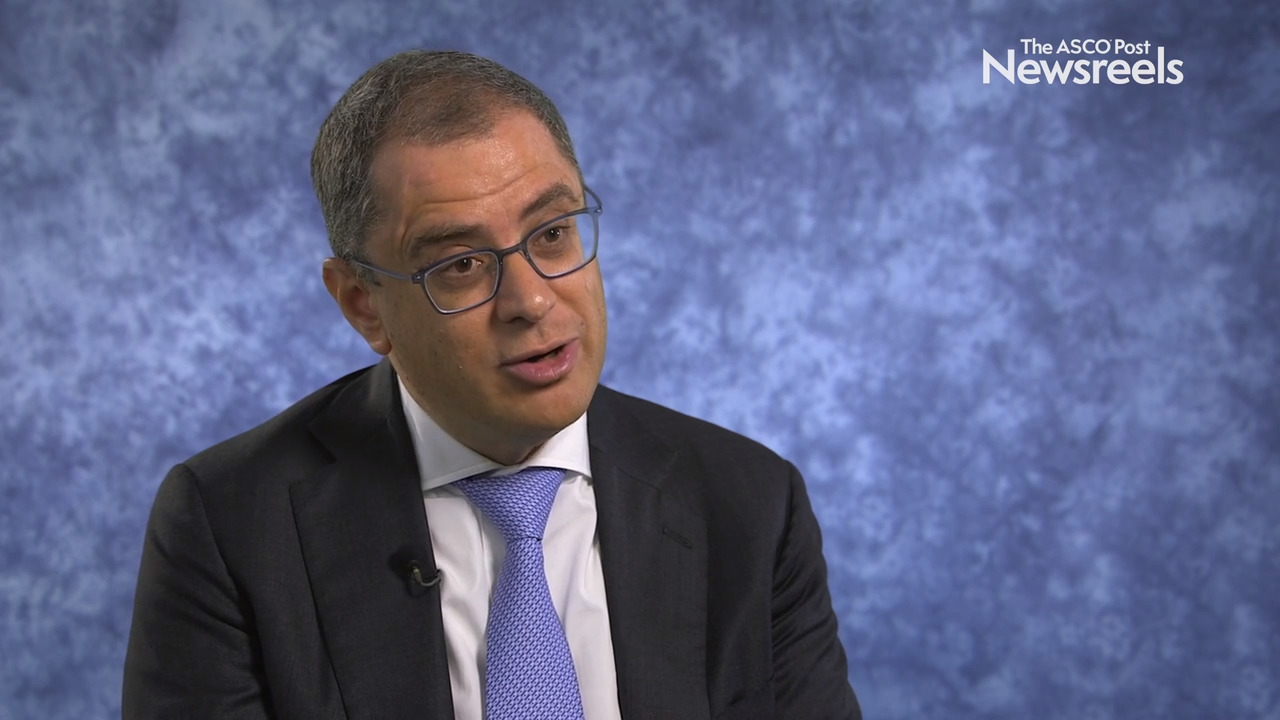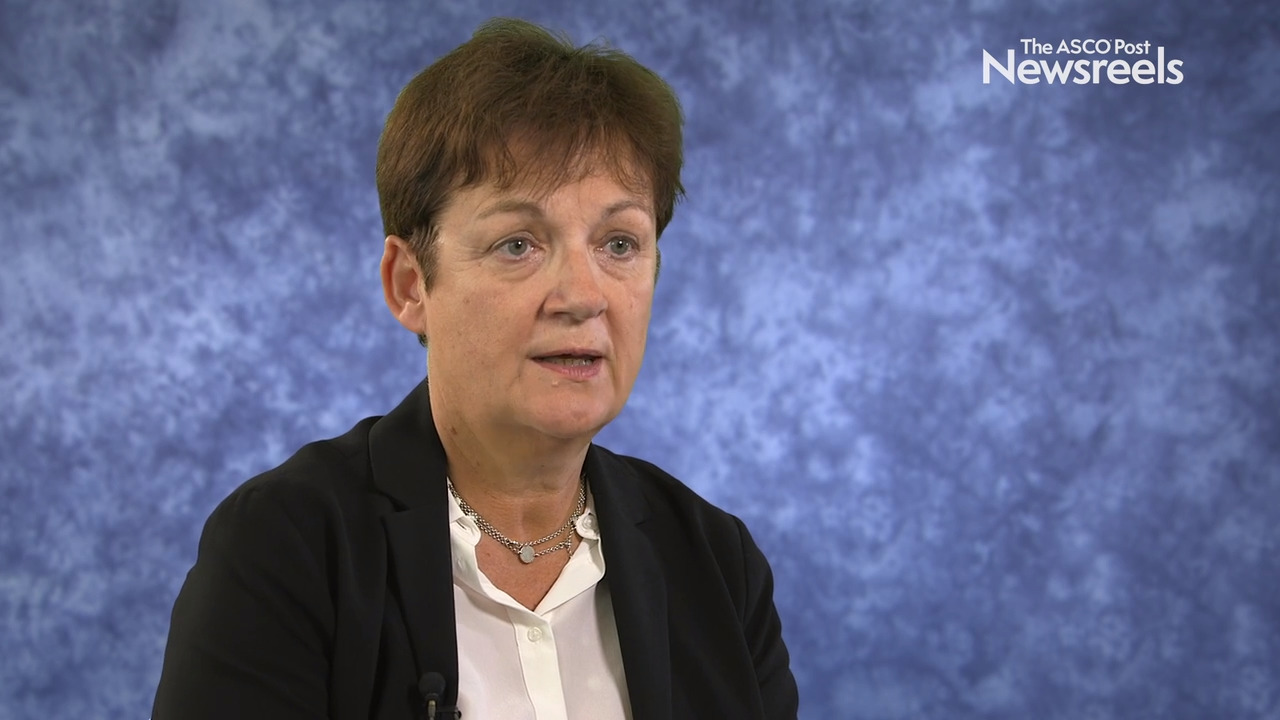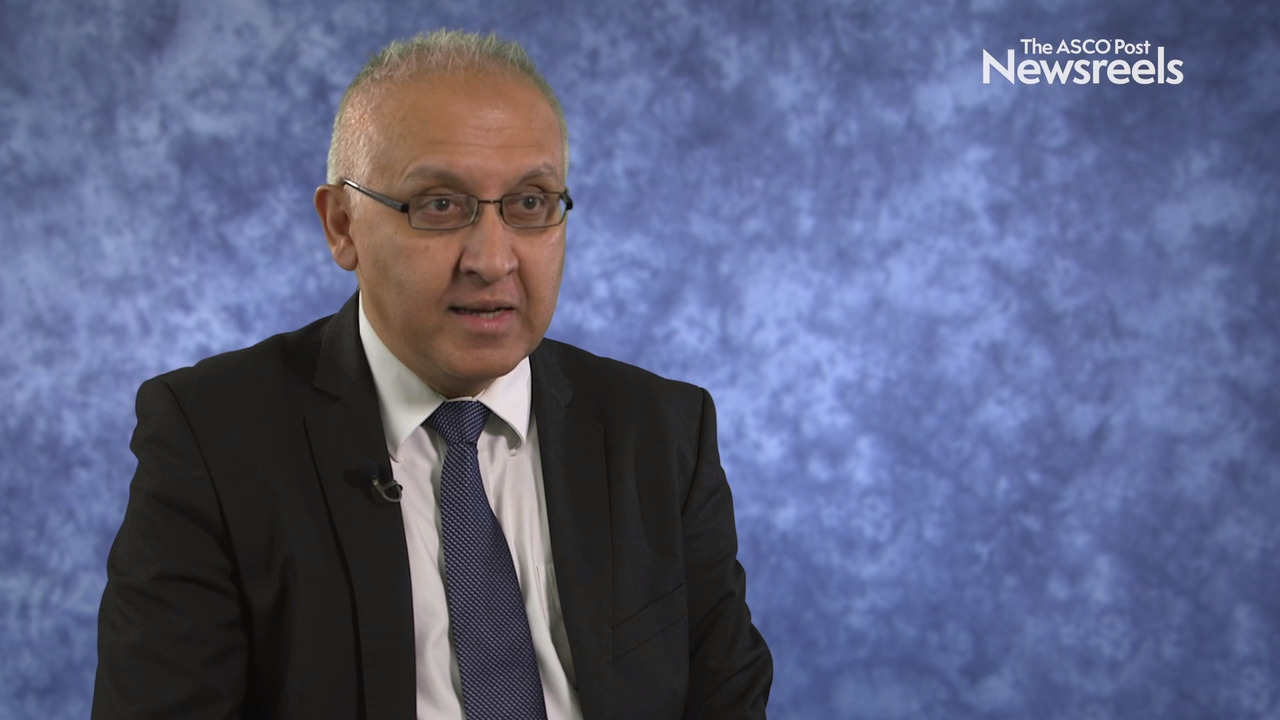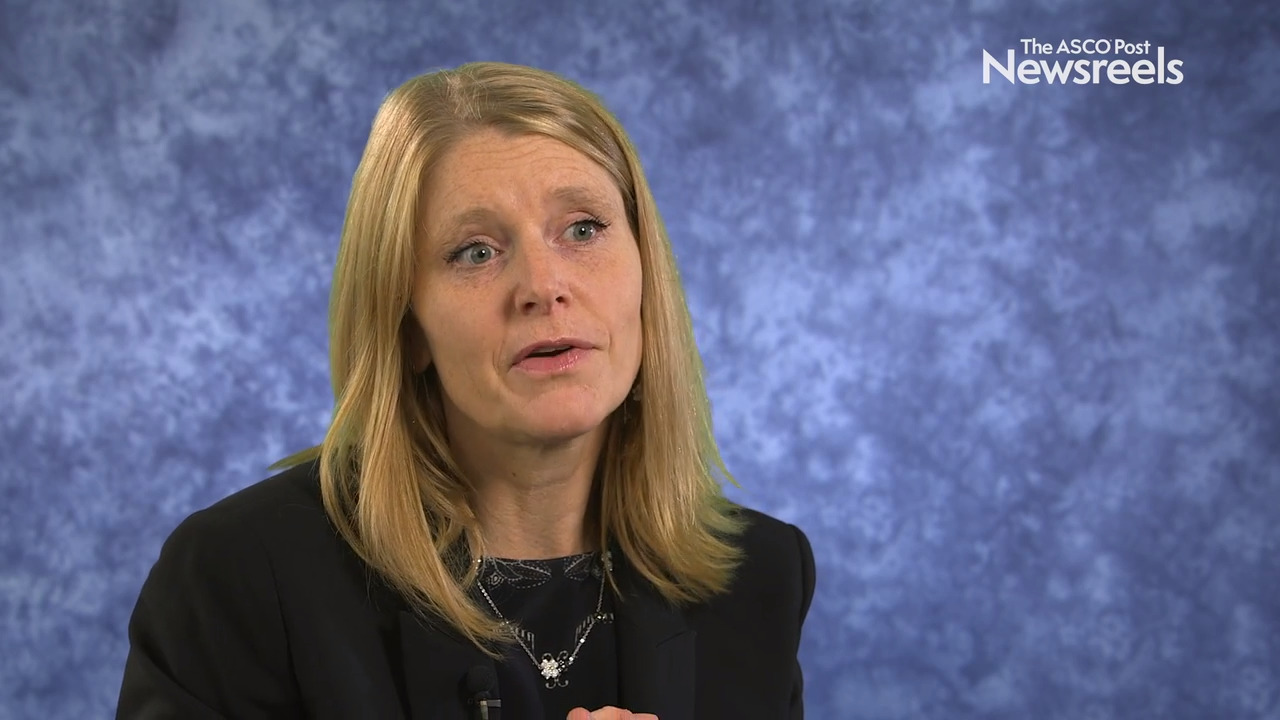Suresh S. Ramalingam, MD, on Osimertinib vs Comparator EGFR TKI in EGFR-Mutated NSCLC: The FLAURA Trial
ESMO 2019 Congress
Suresh S. Ramalingam, MD, of Emory University, discusses results from the final overall survival analysis of the phase III FLAURA trial in EGFR-mutated advanced non–small cell lung cancer, which showed that osimertinib provided a survival benefit vs comparator EGFR tyrosine kinase inhibitor therapy in the first-line setting (Abstract LBA5).
Sherene Loi, MD, PhD, of Peter MacCallum Cancer Centre at the University of Melbourne, and Leisha A. Emens, MD, PhD, of UPMC Hillman Cancer Center, discuss overall survival in this phase II study of atezolizumab/trastuzumab emtansine (T-DM1) vs placebo/T-DM1 in previously treated HER2-positive advanced breast cancer (Abstract 305O).
Ghassan K. Abou-Alfa, MD, MBA, of Memorial Sloan Kettering Cancer Center, discusses phase III study findings showing improvement in progression-free survival among patients with an isocitrate dehydrogenase 1 (IDH1) mutation who received ivosidenib compared with a similar group that received placebo (Abstract LBA10).
Véronique Diéras, MD, of Institut Curie Paris & Saint Cloud, discusses results from the phase III BROCADE 3 trial, which investigated the PARP inhibitor veliparib in combination with carboplatin/paclitaxel in patients with advanced HER2-negative, germline BRCA–mutated breast cancer (Abstract LBA9).
Mansoor R. Mirza, MD, of Copenhagen University Hospital, offers his perspective on three studies presented in the Presidential Symposium: the PRIMA/ENGOT-OV26/ GOG-3012 trial (niraparib for newly diagnosed advanced disease); the PAOLA-1/ENGOT-ov25 trial (olaparib plus bevacizumab maintenance therapy in newly diagnosed advanced disease); and the VELIA/COG-3005 study (integrating veliparib with front-line chemotherapy and maintenance therapy) (Abstracts LBA 1–4).
Solange Peters, MD, PhD, of the Oncology Department of CHUV, discusses study findings from the first phase III trial to show PD-1 and CTLA-4 inhibition is effective in non–small cell lung cancer, with improved overall survival vs chemotherapy (Abstract LBA4).
